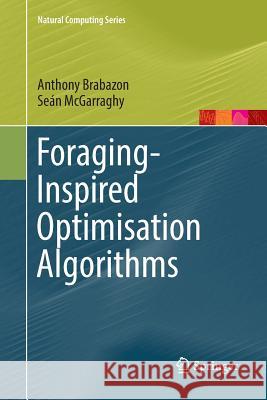Foraging-Inspired Optimisation Algorithms » książka
topmenu
Foraging-Inspired Optimisation Algorithms
ISBN-13: 9783030096403 / Angielski / Miękka / 2019 / 478 str.
Kategorie:
Kategorie BISAC:
Wydawca:
Springer
Seria wydawnicza:
Język:
Angielski
ISBN-13:
9783030096403
Rok wydania:
2019
Wydanie:
Softcover Repri
Numer serii:
000304236
Ilość stron:
478
Waga:
0.68 kg
Wymiary:
23.39 x 15.6 x 2.54
Oprawa:
Miękka
Wolumenów:
01
Dodatkowe informacje:
Wydanie ilustrowane











